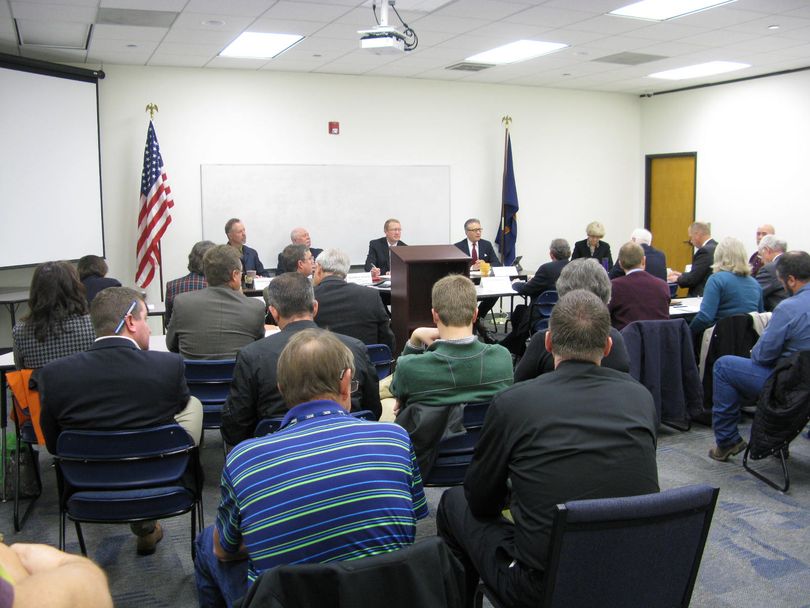Tax Commission mulls line between real, personal property for new tax break…

Idaho’s state Tax Commission has a full house today at a hearing on two proposed rules setting definitions for personal property, now that the Legislature has enacted a new partial property tax exemption for personal property. Canyon County Assessor Gene Kuehn was the only person to testify in favor of the proposed rules; the room is packed with representatives of railroads, utilities and other interests opposing the rules. The big sticking point: The new rules define things like railroad tracks and pipelines as real property, not personal propertly. That means they wouldn’t be eligible for the new break.
Kuehn told the state’s four tax commissioners, “It will provide consistency. Assessors are always accused of being 44 different ways of valuations. This will keep us in line, as far as valuing personal and real property.” He said county assessors back the rule as-is. “To tell you the truth, I think we all think there needs to be some legislative direction on this, of what’s personal and what’s real,” he said. “As it stands right now, we stand by it.”
Rick Smith, an attorney with Hawley troxell representing Northwest Pipeline, Century Link, and AT&T, gesturing to the crowded room, said, “Maybe … we can take a count of how many are against it.” But a few minutes later, Commissioner Tom Katsilometes noted, “When Gene made his comment, he was representing 44 assessors.” Amid laughter, Smith said he’d withdraw his suggestion of a count.
Smith told the commission he disagrees with treating railroad tracks and pipelines as real property. “Some states take a very restrictive view,” Smith said. “New York, for example, considers all this type of property as real property. But I would submit that Idaho is not New York.” He said, “Real property includes improvements, structures and fixtures. I just don’t believe that railroad tracks is an improvement to real property. And it’s not a structure.” That would make it a fixture, he said, but it’s not a fixture that’s integral to the main purpose of the real estate, like an irrigation system for a farm.
Tax Commissioner Rich Jackson countered, “The railroad has a railroad system to function as a railroad. The telephone company has a series of assets to function as a telephone company. Cell towers are the same thing. … So I can’t quite make the distinction that you are.”
Jackson said, “Frankly, we got charged with looking at this, and we’re taking our best shot. But we aren’t the decision makers – that’s the Legislature.” Over the past 10 years, Jackson said, “Industry, the assessors and our staff tried to come to some common ground. I don’t think that will be without controversy, ever. I think controversy will continue. But I have a basic concept – here’s what’s within the boundary of a county, and how do you tax ‘em?” Smith responded, “I know everybody’s trying to do the right thing here. I appreciate all that.”
Six items in the new Tax Commission rules regarding real and personal property are drawing the brunt of the objections at today’s hearing: Cell towers, underground storage tanks, poles and towers, signposts, pipelines and conduit, and railroad track. All six are declared to be real property, not personal property, and therefore not eligible for a new partial tax break for personal property enacted by state lawmakers this year.
Gerry White of Union Pacific Railroad called the proposed new rules “discriminatory” toward railroads like Union Pacific. An Idaho Power representative called on the commission to reject the rule, prompting commissioners to note that some rule must be enacted to implement the new law.
